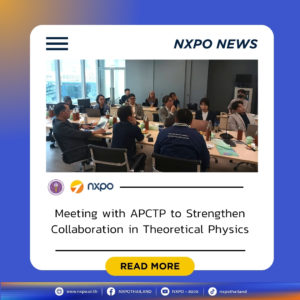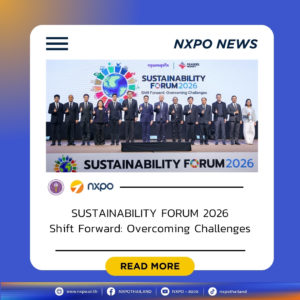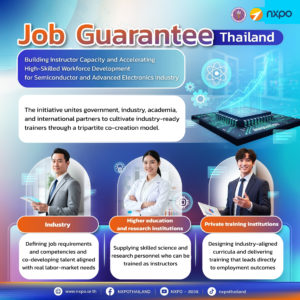NXPO, in collaboration with the Council of Scientific and Technological Association of Thailand (COSTAT), organized COSTAT Pre-Summit Workshop on 20 October 2022 at Century Park Hotel Bangkok. Focusing on the “S&T Education for Sustainable Future” theme, the workshop brought together stakeholders and experts to discuss and design mechanisms to drive COSTAT’s initiatives on S&T education for sustainable future and designate initiative champions.

In his opening remarks, Prof. Sirirurg Songsivilai, Permanent Secretary for Higher Education, Science, Research and Innovation, underscored the importance of sustainable development, especially in the post-pandemic era. While stakeholders are aware of the essential role of science and technology in driving sustainability, it is vital to have full understanding and support of the public. Prof. Sirirurg provided the guidelines for the workshop to set goals, milestones and aim for rapid, expansive, and inclusive results.

In his speech, NXPO President Dr. Kitipong Promwong talked about four key missions of Thailand’s higher education, science, research and innovation policy. Firstly, the policy must drive sustainable economic growth to free Thailand from the middle-income trap. The answer to this challenging goal is to transition to an innovation-driven economy. For this reason, a target has been set to create 1,000 innovation-driven enterprises (IDEs) with THB 1-billion revenues in 5 years. Secondly, the policy aims to facilitate upward social mobility of 1 million people by providing supports in education, career development, health, and access to social welfare services. The third objective is to achieve carbon neutrality and net zero greenhouse gas emissions. New initiatives will need to be explored in the context of industry and community. The fourth mission is skilled workforce which represents a key decision-making factor for investment. For this last part, NXPO has introduced a skilled workforce development platform along with tax incentives. This platform consists of reskilling/upskilling courses and so far, these courses have been taken by over 15,000 workers. Later this year, 300 new courses for soft skill development will be introduced and available for free to college students. Dr. Kitipong hoped that this workshop would come up with an end-to-end actionable mechanism that can lead to further policy recommendations.

COSTAT Working Group Chairman Dr. Songsak Srianujata laid out four areas that the working group has identified as priorities to achieve the UN Sustainable Development Goals (SDGs), namely 1) health and well-being, 2) food and agriculture, 3) energy and environment, and 4) digital technology. From previous brainstorming sessions, the working group has arrived at three initiatives: 1) Creativity for Sustainability School, 2) Sustainable Food and Agriculture, and 3) Low Carbon Society for Environmental Sustainability.

The workshop then proceeded with breakout sessions for participants to define goals, outcomes and impacts and design workplans and activities for each initiative.









